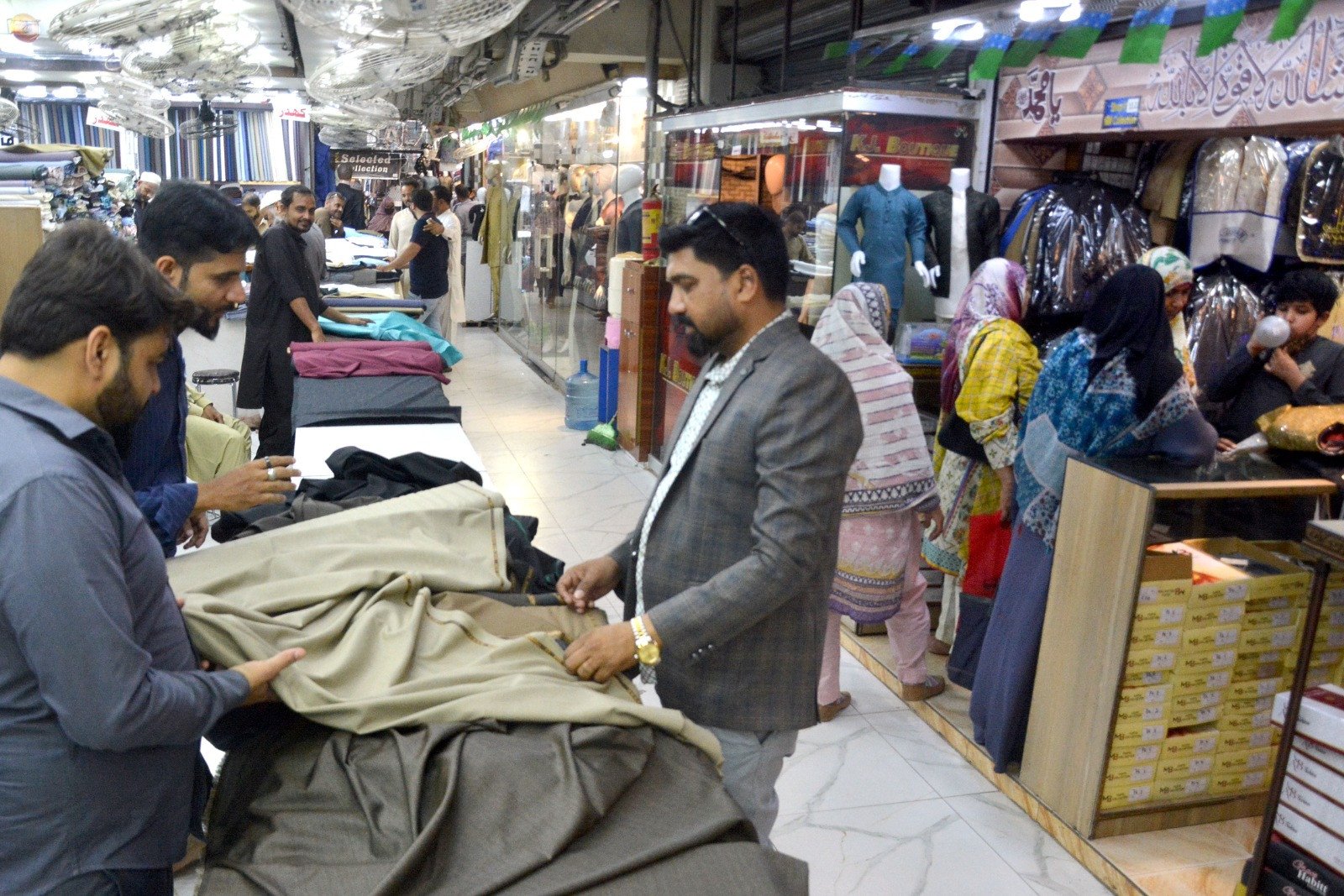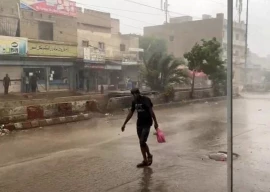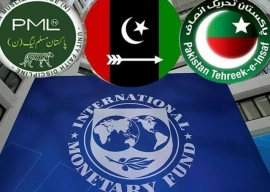
Inflation’s impact is unmistakable in Eidul Fitr shopping trends, with a noticeable decline in purchases of new clothes for the festive occasion. The sale of unstitched garments is subdued in men's clothing centres across the metropolitan city.
The surge in cloth prices and tailoring charges has prompted most citizens to prefer stitched garments, while buyers of unstitched fabrics are also scaling back. Consequently, the traditional vibrancy of clothing markets has diminished.
Men's clothing sales markets in Karachi, including Bolton Market, Jama Cloth, Sadar, Landhi, Liaquatabad, and Clifton, alongside the Bara markets in areas like Banaras, Paposh, Lasbela, Nazimabad, and Tariq Road, are witnessing a drop in shoppers.
The trend of purchasing unstitched cloth for Eid has been steadily declining, primarily due to rising cloth prices and sewing charges. This year, there's a significant reduction in clothing purchases, with a noticeable absence of the usual pre-Eid rush.
The shopping frenzy typically begins in Shaban, but this year, it's notably subdued. Garment traders attribute this to the devaluation of the rupee, which has increased the cost of imported cloth, coupled with local mills hiking prices due to rising costs and increased business expenses, including delivery and transportation costs.
Citizens note that a regular suit costs between Rs2,500 and Rs3,000, with stitching adding an additional Rs1,500, totaling Rs4,000 to Rs4,500. In comparison, stitched branded suits are available for at least Rs4,000 to Rs5,000, while common stitched suits range from Rs2,000 to Rs2,500, making them a more economical choice.
Despite inflation, buyers emphasise the tradition of sewing new attire for Eid, as it adds to the festivity of the occasion. Therefore, new clothes are stitched based on individual purchasing power.
The Bara market, also known as Chawla Market, in Nazimabad, is a prominent hub for men's clothing, offering imported and local fabrics. More than 100 shops in these markets cater to diverse preferences, selling cotton and various wash-and-wear fabrics. This year, shopkeepers are adjusting prices due to low buyer budgets caused by inflation.
Cotton suits are priced between Rs1,800 and Rs2,600, while wash-and-wear fabrics range from Rs1,500 to Rs2,000. Compared to last year, cloth prices have surged by Rs100 to Rs150 per meter, making a standard six-meter suit Rs600 to Rs900 pricier. However, shoppers appreciate the market's accessibility and diverse offerings.
According to cloth merchants, 60% of imported and 40% of locally manufactured cloth is purchased for men's clothing on Eid. Imported cloth primarily comes from China, while local cloth is predominantly sourced from Kamalia and Faisalabad. Due to increased business costs and reduced sales, no new stock of foreign cloth was ordered this Eid, exacerbating the scarcity of quality local fabrics and driving prices up by 30% compared to last year.
On Eid, cotton clothing fabric is preferred for its suitability in hot weather, whereas wash-and-wear fabrics are favored on regular days for their durability and wrinkle-resistant properties. Light-colored fabrics are popular during Eid festivities, with white, sky blue, and half-white being top choices, while darker hues such as navy blue, black, brown, and biscuit are favored by the youth.
Published in The Express Tribune, March 25th, 2024.





1704571949-1/Landgrab-Korangi-(2)1704571949-1-270x192.webp)


1722596924-0/BeFunky-collage-(25)1722596924-0-270x192.webp)









COMMENTS
Comments are moderated and generally will be posted if they are on-topic and not abusive.
For more information, please see our Comments FAQ